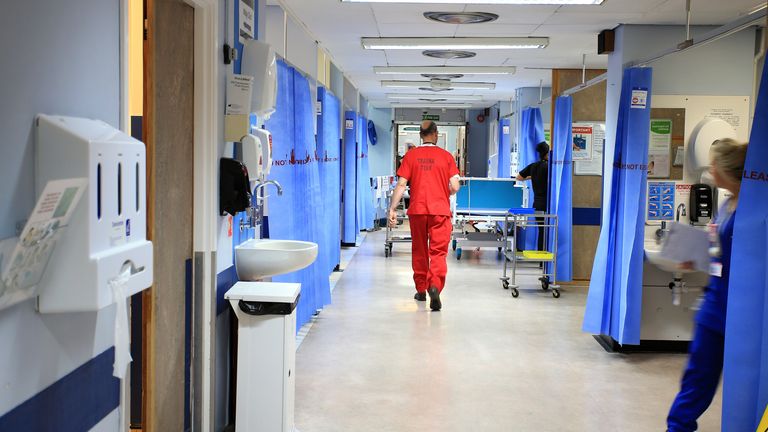Talking more quietly can reduce the spread of coronavirus, a study has found.
A reduction of six decibels in average speech levels can have the same effect on cutting transmission of COVID-19 as doubling a room’s ventilation, according to an advance copy of a paper detailing the research.
Live coverage of the latest coronavirus news and updates
Six scientists from the University of California, Davis, said their findings suggested more quiet zones in high-risk indoor spaces – such as hospitals and restaurants – could benefit efforts to curb the disease’s spread.
The World Health Organisation amended its guidance in July to acknowledge the possibility of aerosol transmission, such as during choir practice, or when in restaurants or fitness classes.
The new research showed microscopic droplets ejected while speaking evaporate to leave behind aerosol particles big enough to carry viable virus.
It said an increase of about 35 decibels in loudness, or the difference between whispering and shouting, boosts the particle emission rate by 50 times.
Normal conversation is generally above the 10-decibel range, while ambient noise in restaurants is around 70.
Lead researcher William Ristenpart said: “Not all indoor environments are equal in terms of aerosol transmission risk.
“A crowded but quiet classroom is much less dangerous than an uncrowded karaoke bar where patrons are socially distanced but talking and singing over loud music.”
The study emerged as the global death toll from coronavirus passed 900,000 on Wednesday, as worldwide cases topped 27.8 million.


